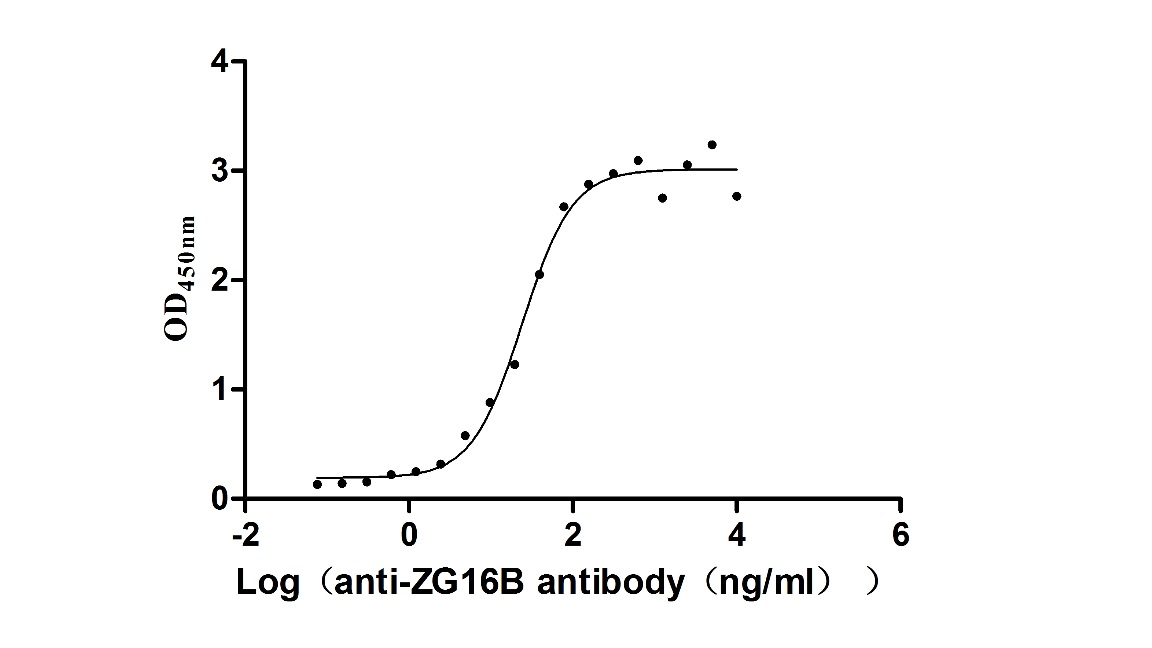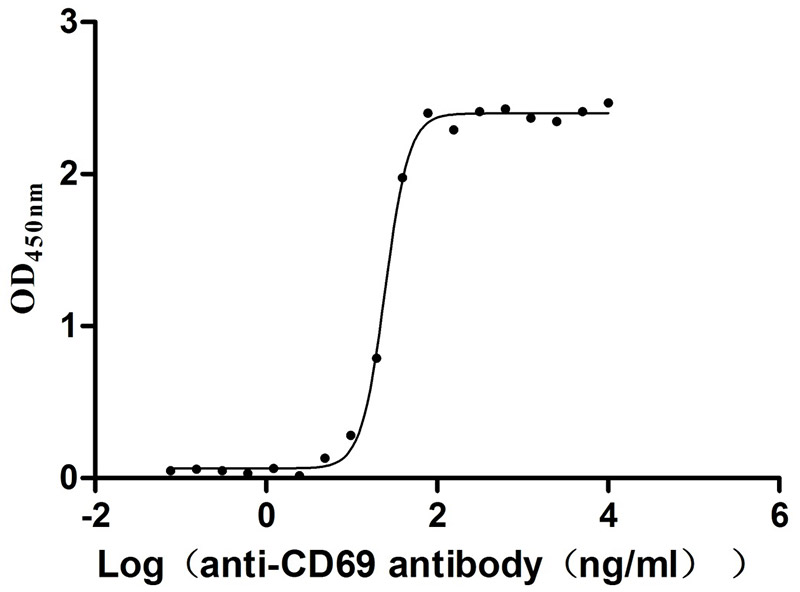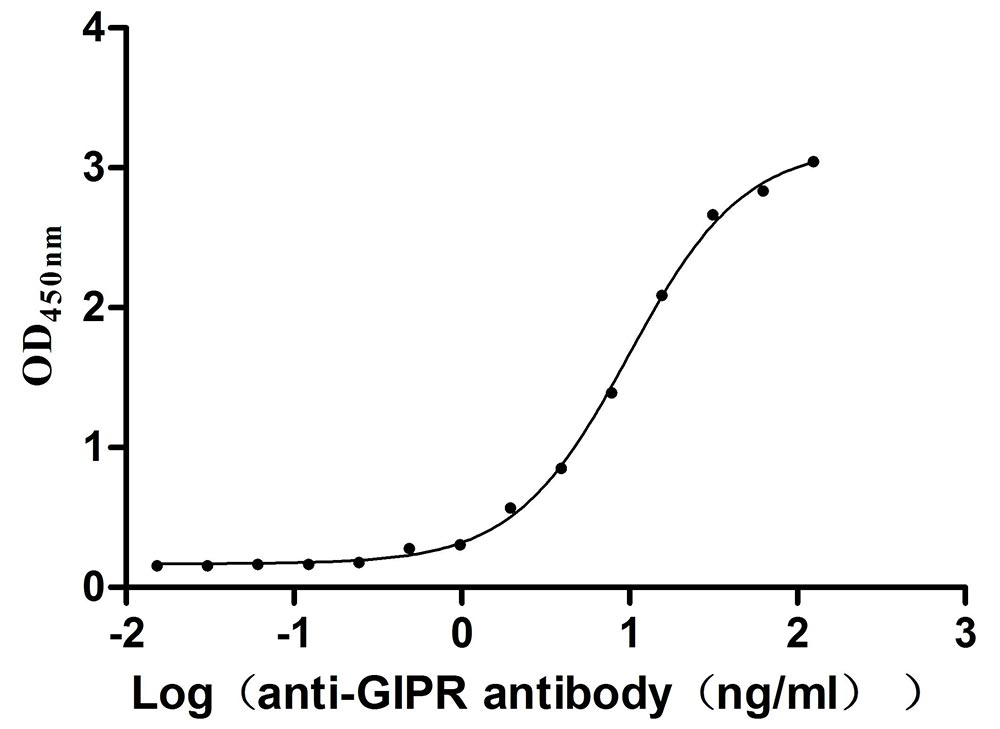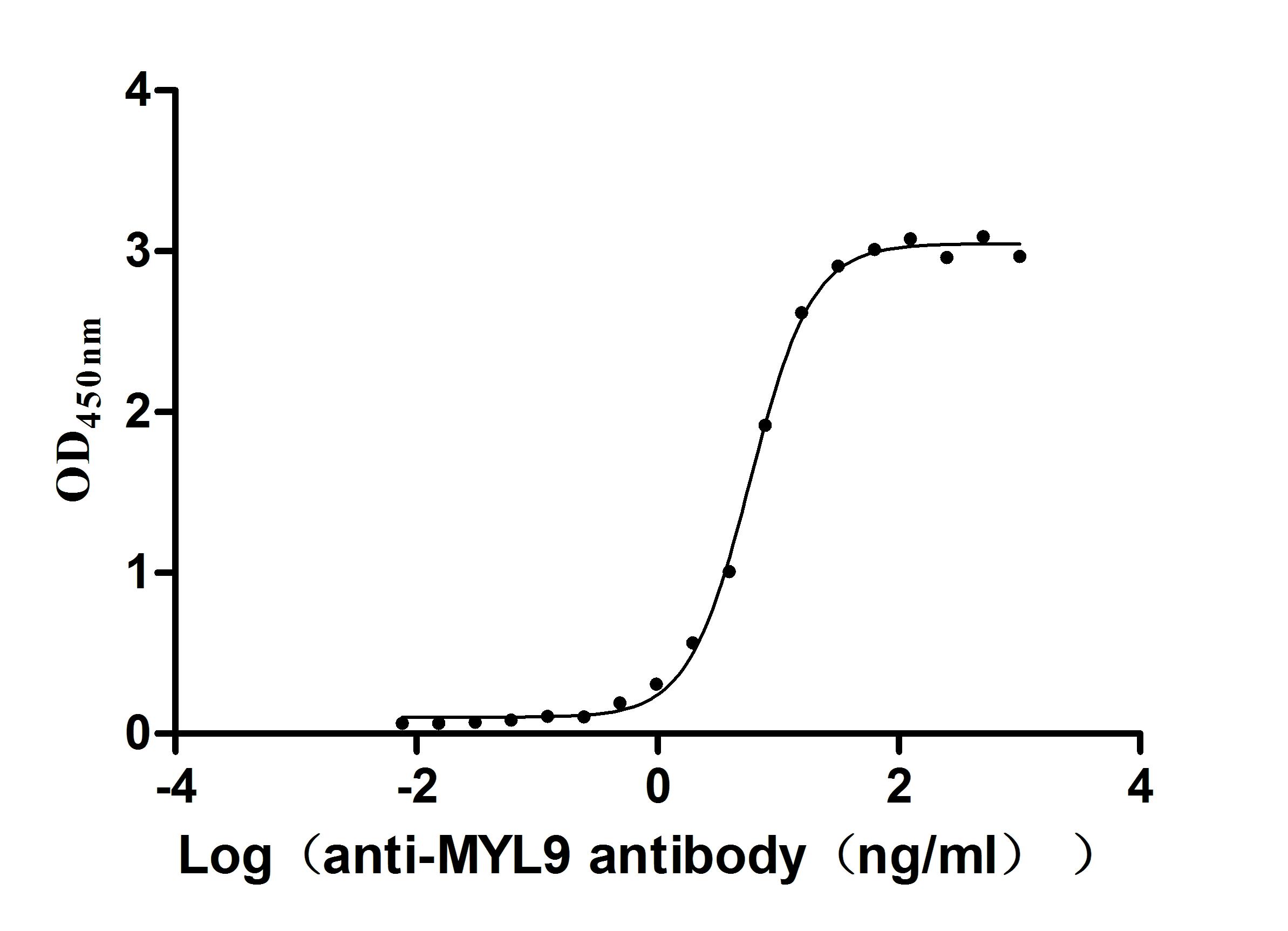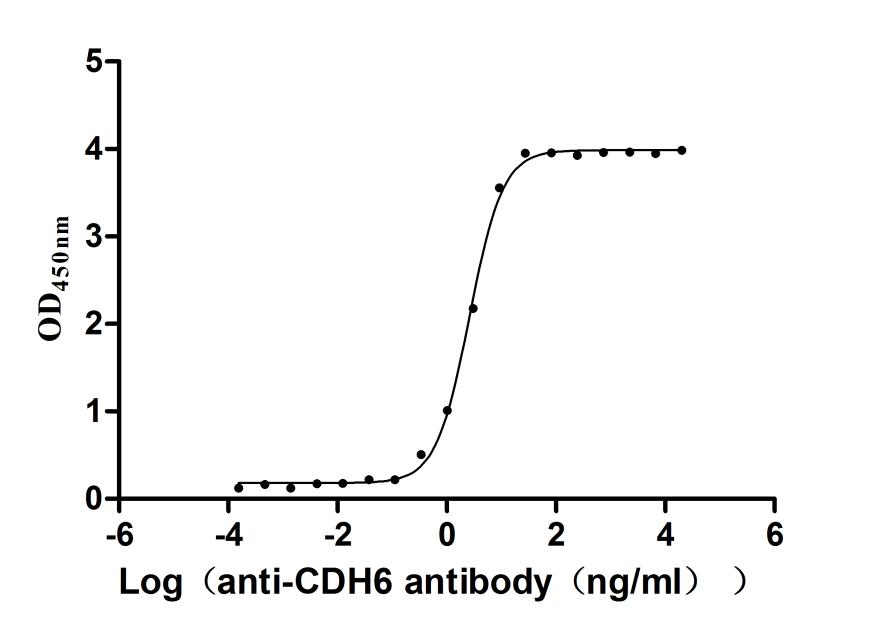Recombinant Human Cystinosin (CTNS), partial
-
中文名稱:Recombinant Human Cystinosin(CTNS),partial
-
貨號(hào):CSB-YP006174HU1
-
規(guī)格:
-
來源:Yeast
-
其他:
-
中文名稱:Recombinant Human Cystinosin(CTNS),partial
-
貨號(hào):CSB-EP006174HU1
-
規(guī)格:
-
來源:E.coli
-
其他:
-
中文名稱:Recombinant Human Cystinosin(CTNS),partial
-
貨號(hào):CSB-EP006174HU1-B
-
規(guī)格:
-
來源:E.coli
-
共軛:Avi-tag Biotinylated
E. coli biotin ligase (BirA) is highly specific in covalently attaching biotin to the 15 amino acid AviTag peptide. This recombinant protein was biotinylated in vivo by AviTag-BirA technology, which method is BriA catalyzes amide linkage between the biotin and the specific lysine of the AviTag.
-
其他:
-
中文名稱:Recombinant Human Cystinosin(CTNS),partial
-
貨號(hào):CSB-BP006174HU1
-
規(guī)格:
-
來源:Baculovirus
-
其他:
-
中文名稱:Recombinant Human Cystinosin(CTNS),partial
-
貨號(hào):CSB-MP006174HU1
-
規(guī)格:
-
來源:Mammalian cell
-
其他:
產(chǎn)品詳情
-
純度:>85% (SDS-PAGE)
-
基因名:CTNS
-
Uniprot No.:
-
別名:CTNS; Cystinosin
-
種屬:Homo sapiens (Human)
-
蛋白長度:Partial
-
蛋白標(biāo)簽:Tag?type?will?be?determined?during?the?manufacturing?process.
The tag type will be determined during production process. If you have specified tag type, please tell us and we will develop the specified tag preferentially. -
產(chǎn)品提供形式:Lyophilized powder
Note: We will preferentially ship the format that we have in stock, however, if you have any special requirement for the format, please remark your requirement when placing the order, we will prepare according to your demand. -
復(fù)溶:We recommend that this vial be briefly centrifuged prior to opening to bring the contents to the bottom. Please reconstitute protein in deionized sterile water to a concentration of 0.1-1.0 mg/mL.We recommend to add 5-50% of glycerol (final concentration) and aliquot for long-term storage at -20℃/-80℃. Our default final concentration of glycerol is 50%. Customers could use it as reference.
-
儲(chǔ)存條件:Store at -20°C/-80°C upon receipt, aliquoting is necessary for mutiple use. Avoid repeated freeze-thaw cycles.
-
保質(zhì)期:The shelf life is related to many factors, storage state, buffer ingredients, storage temperature and the stability of the protein itself.
Generally, the shelf life of liquid form is 6 months at -20°C/-80°C. The shelf life of lyophilized form is 12 months at -20°C/-80°C. -
貨期:Delivery time may differ from different purchasing way or location, please kindly consult your local distributors for specific delivery time.Note: All of our proteins are default shipped with normal blue ice packs, if you request to ship with dry ice, please communicate with us in advance and extra fees will be charged.
-
注意事項(xiàng):Repeated freezing and thawing is not recommended. Store working aliquots at 4°C for up to one week.
-
Datasheet :Please contact us to get it.
相關(guān)產(chǎn)品
靶點(diǎn)詳情
-
功能:Cystine/H(+) symporter that mediates export of cystine, the oxidized dimer of cysteine, from lysosomes. Plays an important role in melanin synthesis by catalyzing cystine export from melanosomes, possibly by inhibiting pheomelanin synthesis. In addition to cystine export, also acts as a positive regulator of mTORC1 signaling in kidney proximal tubular cells, via interactions with components of the v-ATPase and Ragulator complexes. Also involved in small GTPase-regulated vesicle trafficking and lysosomal localization of LAMP2A, independently of cystine transporter activity.
-
基因功能參考文獻(xiàn):
- Cystinosis was primarily diagnosed by a pediatric nephrologist and then referred to the Iran University of Medical Sciences genetics clinic for consultation and molecular analysis, which involved polymerase chain reaction (PCR) amplification to determine the presence or absence of the 57-kb founder deletion in CTNS, followed by direct sequencing of the coding exons of CTNS PMID: 28238446
- Potential dual function of PQ-loop proteins such as cystinosin. PMID: 28887435
- To study the role of the cystinosin-LKG-isoform, we have investigated cystine accumulation and apoptosis that have been described in cystinotic cells. The levels of TNFalpha- and actinomycin D-inducted apoptosis dropped in cystinotic cells expressing LKG-isoform. This effect was also similar to the main isoform. PMID: 27656773
- This work demonstrated no major abnormality ofER and lysosomal Ca2+signalling associated with cystinosin defi-ciency in human proximal tubular epithelial cells. PMID: 27451386
- The coding exons of the CTNS gene in 5 different Jordanian families and one family from Sudan with nephropathic cystinosis were sequenced. None had the European 57-kb deletion. 7 variants in the coding and promoter sequence of the CTNS gene were found: 294C>T, -180T>C, -118C>T, c.504G>A, p.Thr168Thr, c.829dupA in exon 10, and c.890G>A in exon 11. PMID: 26565940
- Results show that the high turnover of ITILELP mutation (del AA67-73) in cystinosin, because of its immature glycosylation state together with low transport activity, might be responsible for the phenotype observed in some cystinosis patients who carry this mutation. PMID: 28082515
- silencing of AP-2 triggers the clathrin-independent endocytosis, showing the complex adaptability of cystinosin-LKG trafficking PMID: 27148969
- upon comparison of the patients with cystinosis in this particular region with the European and North American patients, it is clear that different CTNS variants result in this disease. PMID: 28276207
- GCK mutations are associated with Cystinosis. PMID: 27269891
- Lack of cystinosin reduced TFEB expression and induced TFEB nuclear translocation. PMID: 26994576
- CTNS deficiency alters cell signaling cascades resulting in impaired cell adhesion and enhanced cell motility in cystinosis. PMID: 27083281
- Using polymerase chain reaction sequencing of the entire coding region, we identified five gene mutations, including two unreported mutations. PMID: 26655004
- cystinosin-deficient cells had abnormal shape and distribution of the endo-lysosomal compartments and impaired endocytosis, with decreased surface expression of multiligand receptors and delayed lysosomal cargo processing. PMID: 25811383
- CTNS-LKG represents 5-20 % of CTNS transcripts, with the exception of the testis that expresses both isoforms in equal proportions. PMID: 22544350
- identified two novel CTNS splicing deletions in a Chinese IC family, one at the donor site of exon 6 of CTNS and the other at the acceptor site of exon 8 PMID: 25866837
- We recommend that black South African and Cape Coloured patients presenting with cystinosis be tested for CTNS-c.971-12G > A in the first instance, with the possibility of prenatal testing being offered to at-risk families. PMID: 25326109
- The present data exhibit a fundament for molecular carrier detection and prenatal diagnosis of a relatively large percentage of Iranian patients suffering from NC PMID: 23640116
- Cystinosin, MPDU1, SWEETs and KDELR belong to a well-defined protein family with putative function of cargo receptors.[cytonosin] PMID: 22363504
- results objectify the pigmentation defect in patients with cystinosis. We also identify the role of CTNS in melanogenesis and add a new gene to the list of the genes involved in the control of skin and hair pigmentation PMID: 22649030
- Mutation analysis of CTNS in six cystinosis patients from four families in Thailand. Using PCR sequencing of the entire coding regions, study identified all eight mutant alleles, including two mutations, p.G309D and p.Q284X, that have not been previously reported. PMID: 22450360
- Report CTNS mutations in Turkish cystinosis patients. PMID: 21786142
- cystinosin exports the proteolysis-derived dimeric amino acid cystine from lysosomes and is impaired in cystinosis. PMID: 22232659
- CTNS plays a pivotal role in regulating cell thiol concentrations. PMID: 21508882
- gene expression is modulated by intracellular thiols PMID: 20079424
- Analysis of CTNS gene transcripts allowed identification of mutations in patients in whom CTNS mutations could not be detected by traditional DNA sequencing. PMID: 20352457
- the cause of cellular ATP depletion in nephrotic cystinosis may be the futile cycle, formed between two ATP-dependant gamma-glutamyl cycle enzymes, gamma-glutamyl cysteine synthetase and 5-oxoprolinase PMID: 20413906
- Analysis of the CTNS gene in 32 cystinosis patients from Spain PMID: 19863563
- G339R mutation is a common cause of nephropathic cystinosis in the southwestern Ontario Amish Mennonite population PMID: 11565547
- A new homozygous GT-->CC substitution of CTNS creates the out-of-frame splicing of exon 5 and a null allele consistent with the patient's severe phenotype. PMID: 11708862
- molecular basis of cystinosis - review. PMID: 12401840
- Data suggest that these individuals carry mutations either in the introns or in unidentified regulatory sequences. PMID: 12442267
- a 57-kb deletion in CTNS causing cystinosis can be visualized by FISH technique PMID: 15365816
- Results show that the yeast Ers1 protein and cystinosin are functional orthologues, despite sharing only limited sequence homology. PMID: 15885099
- There may be an influence of the cystinosis gene on brain development, rather than an adverse effect of prolonged cystine accumulation in the brain during childhood. PMID: 17643777
- Analysis of the CTNS gene in nephrotic cystinosis Mexian patients: report of four novel mutations and identification of a false-positive 57-kb deletion genotype with LDM-2/exon 4 multiplex PCR assay. PMID: 18752449
- Sequencing analysis of all the CTNS exons revealed that the proband is homozygous for a 3-bp in-frame deletion in exon 10 (c.809_811delCCT), resulting in the loss of a conserved p.Ser270del within the fifth transmembrane domain of CTNS. PMID: 19580442
- Eight mutations were identified, four of which are novel (c.530A>G, c.681G>A, 1013T>G, and c.1018_1041del). These alleles will provide the basis for routine molecular diagnosis of cystinosis. PMID: 19852576
- specific promotor mutations cause cystinosis PMID: 11505338
顯示更多
收起更多
-
相關(guān)疾病:Cystinosis, nephropathic type (CTNS); Cystinosis, adult, non-nephropathic type (CTNSANN); Cystinosis, late-onset juvenile or adolescent nephropathic type (CTNSJAN)
-
亞細(xì)胞定位:[Isoform 1]: Lysosome membrane; Multi-pass membrane protein. Melanosome membrane; Multi-pass membrane protein.; [Isoform 2]: Lysosome membrane; Multi-pass membrane protein. Cell membrane; Multi-pass membrane protein.
-
蛋白家族:Cystinosin family
-
組織特異性:Strongly expressed in pancreas, kidney (adult and fetal), skeletal muscle, melanocytes and keratinocytes. Expressed at lower levels in placenta and heart. Weakly expressed in lung, liver and brain (adult and fetal).; [Isoform 2]: Represents 5-20 % of CTNS
-
數(shù)據(jù)庫鏈接:
Most popular with customers
-
Recombinant Human IGF-like family receptor 1 (IGFLR1), partial (Active)
Express system: Mammalian cell
Species: Homo sapiens (Human)
-
Recombinant Human E3 ubiquitin-protein ligase ZNRF3 (ZNRF3), partial (Active)
Express system: Mammalian cell
Species: Homo sapiens (Human)
-
Recombinant Human C-X-C chemokine receptor type 4 (CXCR4)-VLPs (Active)
Express system: Mammalian cell
Species: Homo sapiens (Human)
-
Recombinant Macaca fascicularis zymogen granule protein 16 homolog B (ZG16B) (Active)
Express system: Mammalian cell
Species: Macaca fascicularis (Crab-eating macaque) (Cynomolgus monkey)
-
Recombinant Human Early activation antigen CD69 (CD69), partial (Active)
Express system: Mammalian cell
Species: Homo sapiens (Human)
-
Recombinant Mouse Gastric inhibitory polypeptide receptor (Gipr), partial (Active)
Express system: Mammalian cell
Species: Mus musculus (Mouse)
-
Recombinant Human Myosin regulatory light chain 12A (MYL12A) (Active)
Express system: E.coli
Species: Homo sapiens (Human)
-
Recombinant Human Cadherin-6(CDH6),partial (Active)
Express system: Mammalian cell
Species: Homo sapiens (Human)


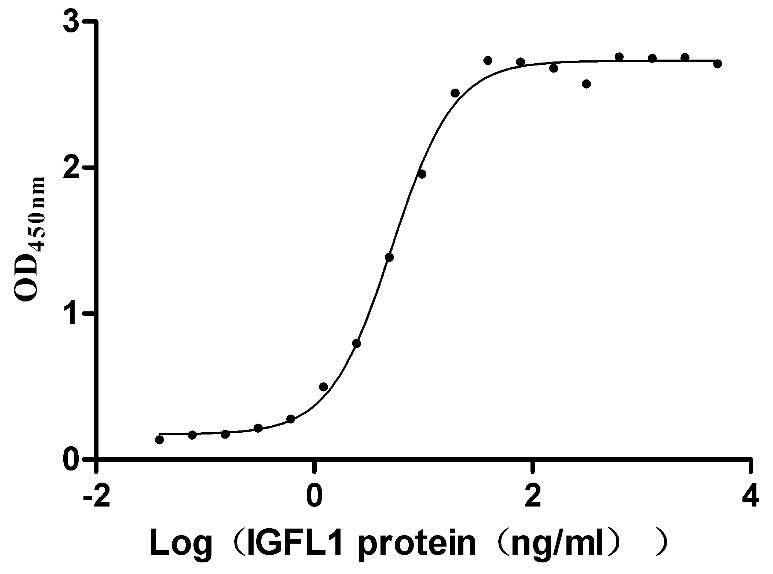
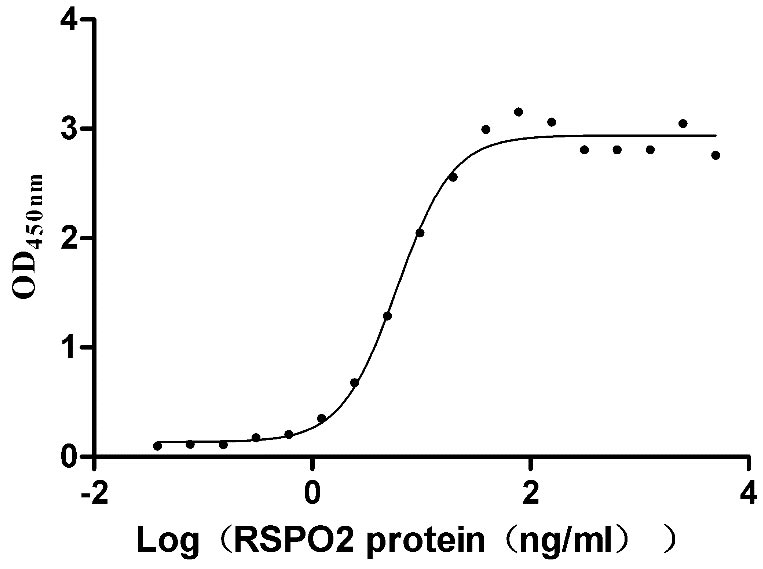
-AC1.jpg)
